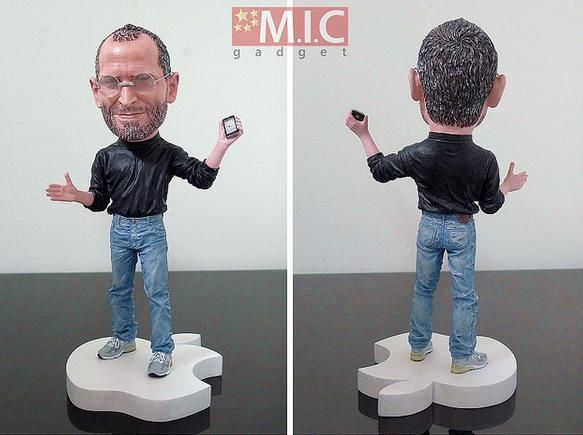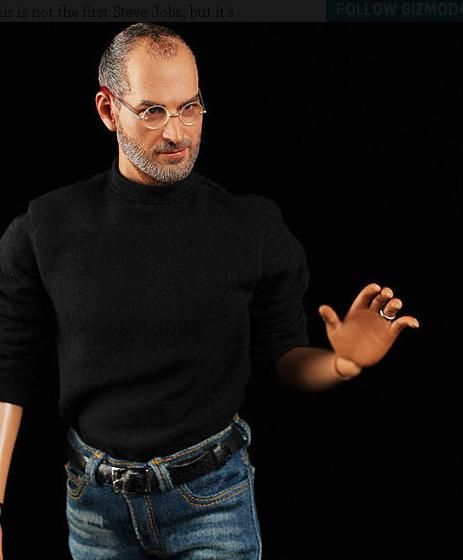Comic Book Questions Answered - where I answer whatever questions you folks might have about comic books (feel free to e-mail questions to me at bcronin@comicbookresources.com). Here is a link to an archive of all the past questions that have been answered so far.
Today, my pal Steve asked me why is it that Steve Jobs' estate can bar the production of an action figure based on the late Apple co-founder (which they just did)...
but Bluewater can put out an unauthorized biography comic book of Jobs?
Read on to find out!
The law that Apple is relying on (and the same law that they relied upon for a previous action figure based on Jobs back in 2010...
)
is California Civil Code Section 3344, the so-called "Personality Rights" law.
Here's the basics of the law:
Any person who knowingly uses another's name, voice, signature, photograph, or likeness, in any manner, on or in products, merchandise, or goods, or for purposes of advertising or selling, or soliciting purchases of, products, merchandise, goods or services, without such person's prior consent, or, in the case of a minor, the prior consent of his parent or legal guardian, shall be liable for any damages sustained by the person or persons injured as a result thereof. In addition, in any action brought under this section, the person who violated the section shall be liable to the injured party or parties in an amount equal to the greater of seven hundred fifty dollars ($750) or the actual damages suffered by him or her as a result of the unauthorized use, and any profits from the unauthorized use that are attributable to the use and are not taken into account in computing the actual damages.
Protection under this law lasts seventy years after the death of the personality. You can read the law here for more specifics.
However, the law has a very specific carve out for unauthorized use that is permitted.
It reads:
For purposes of this subdivision, a play, book, magazine, newspaper, musical composition, audiovisual work, radio or television program, single and original work of art, work of political or newsworthy value, or an advertisement or commercial announcement for any of these works, shall not be considered a product, article of merchandise, good, or service if it is fictional or nonfictional entertainment, or a dramatic, literary, or musical work.
This is where Bluewater is protected. This is because the United States Constitution contains free speech protection which trumps the personality rights discussed here (just for the examples mentioned, of course - free speech doesn't mean that you have the right to make money off of a $100 toy replica of a dead celebrity). You might ask, then, why does anyone ever pay people for their "life story rights" of personalities when they can just do an unauthorized biography? That is because without life story rights, you would be in trouble if you were found to have invaded the person's privacy (in other words, you pretty much have to base the biography on publicly available information) or hurt their reputation. Plus, life story rights would typically get you access to confidential information and it would also allow you to make tie-in products that would otherwise qualify as violations of the above-stated personality rights. So there's a real benefit to getting life story rights.
If you have a question that you'd like to see answered, drop me a line at bcronin@comicbookresources.com.



